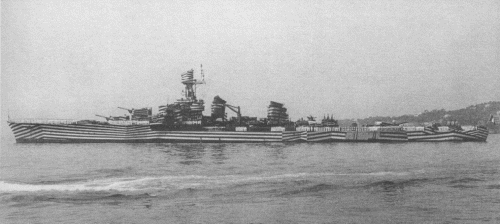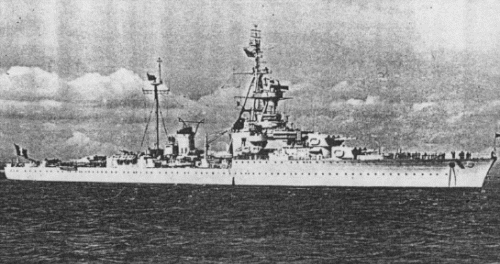
NAVYPEDIA
 Support the project with paypal
Support the project with paypal
Photo

La Galissonnière 1940
Ships
| Name | No | Yard No | Builder | Laid down | Launched | Comp | Fate |
|---|---|---|---|---|---|---|---|
| La Galissonnière | Arsenal de Lorient | 15.12.1931 | 18.11.1933 | 1.4.1936 | scuttled 27.11.1942 | ||
| Jean de Vienne | Arsenal de Brest | 20.12.1931 | 31.7.1935 | 10.2.1937 | scuttled 27.11.1942 | ||
| Marseillaise | A C de la Loire, St-Nazaire | 23.10.1933 | 17.7.1935 | 10.10.1937 | scuttled 27.11.1942 | ||
| Gloire | F C de la Gironde, Bordeaux | 13.11.1933 | 28.9.1935 | 15.11.1937 | FNFL 1.1943, stricken 1.1958 | ||
| Montcalm | F C de la Méditerranée, La Seyne | 15.11.1933 | 26.10.1935 | 15.11.1937 | FNFL 1.1943, accommodation ship 1959, stricken 12.1969 | ||
| Georges Leygues | Y7 | A C de la Loire et Penhoët, St-Nazaire | 21.9.1933 | 24.3.1936 | 15.11.1937 | FNFL 1.1943, stricken 11.1959 |
Technical data
| Displacement standard, t | 7600 |
|---|---|
| Displacement full, t | 9100 |
| Length, m | 172.0 pp 179.5 oa |
| Breadth, m | 17.5 |
| Draught, m | 5.35 full load |
| No of shafts | 2 |
| Machinery | La Galissonnière, Montcalm, Georges Leygues: 2 sets Parsons geared steam turbines, 4 Indret boilers Jean de Vienne, Marseillaise, Gloire: 2 sets Rateau-Bretagne geared steam turbines, 4 Indret boilers |
| Power, h. p. | 84000 |
| Max speed, kts | 31 |
| Fuel, t | oil 1569 |
| Endurance, nm(kts) | 5500(18) |
| Armour, mm | belt: 105, torpedo bulkhead: 20, bulkheads: 60 - 20, deck: 38, turrets: 100 - 50, barbettes: 95 - 70, CT: 95 - 50 |
| Armament | La Galissonnière: 3 x 3 - 152/55 M1930, 4 x 2 - 90/50 M1930, 4 x 2 - 13.2/76, 2 x 2 - 550 TT, 1 catapult, 4 seaplanes (CAMS.37, GL.810, GL.812, GL.813, GL.832, PL.15, Potez 452) others: 3 x 3 - 152/55 M1930, 4 x 2 - 90/50 M1930, 4 x 2 - 13.2/76, 2 x 2 - 550 TT, 1 catapult, 3 seaplanes (CAMS.37, GL.810, GL.812, GL.813, GL.832, PL.15, Potez 452, Loire 130) |
| Complement | 540 |
Standard scale images

Montcalm 1940

Gloire 1943

Georges Leygues 1940

Georges Leygues 1945
Graphics
Project history
Built under 1931 (first two) and 1932 (others) programmes. Became the answer to occurrence of Italian light cruisers of Raimondo Montecuccoli and Duca d`Aosta classes with armoured belts.
As a whole they presented development of Émile Bertin and distinguished by much stronger protection at some decrease in contract speed. However, Italy did similarly. Accepted armour ensured practically absolute ballistic protection against 152mm shells on expected battle distances. At the expense of decrease in machinery power it was possible to make them more compact and designers could place in the hull 20mm longitudinal anti-torpedo bulkhead, notably having raised hardening of the ships.
Despite the "stated" 31kts speed, on trials all cruisers exceeded it, having shown from 34.98 to 35.42kts. Endurance still remained rather small.
It is necessary to mark strong (at the moment of project drawing up) antiaircraft artillery of large calibre. The torpedo armament consisted of only 4 tubes look a little deadened. It is necessary to mark, that TT have been installed so, that the starboard mount "looked" ahead, and port mount was directed astern. For simplification of arresting seaplanes ships received a landing awning. For the given project the hangar on 2 aircrafts with double doors, entered in an aft superstructure was characteristic. 2 more aircrafts were stored openly. Besides, release of a stern for operations with seaplanes became feature of external appearance of these cruisers. A catapult arrangement on main turret for late 1930th was unusually enough.
On set of characteristics ships of this class presented almost ideal pre-war light cruiser.
Ship protection
Torpedo bulkhead protected the hull between end barbettes. Main 105mm belt protected machinery and command center under main deck, it was about 2m narrower abreast magazines. Transverse bulkheads had 60mm thickness between main deck and upper platform and 20mm between upper platform and double bottom. They were placed forward from barbette No1, between command center and barbette No2, between machinery spaces and barbette No3 and aft from barbette No3. Belt was closed by 38mm main deck. Steering gear compartment had 38mm crown, 26mm sides and 20mm transverse bulkheads. Turrets had 100mm faces, 50mm sides and crowns and 40mm rears. Barbettes had 95mm protection over upper deck and 70mm between main and upper decks. CT had 95mm sides and 50mm roof and had communication tube with 45mm armour.
Modernizations
early 1941, La Galissonière, Jean de Vienne, Gloire, Georges Leygues: + 1 x 2 - 25/60 M1938, 2 x 2 - 13.2/76
8/1941, La Galissonière, Jean de Vienne, Marseillaise: + 1 x 2 - 37/50 M1933
11/1943, Gloire, Georges Leygues: - 1 x 2 - 25/60, 6 x 2 - 13.2/76, catapult with seaplanes; + 6 x 4 - 40/56 Mk 1.2, 16 x 1 - 20/70 Mk 4, SA, SF radars
7/1943, Montcalm: - 6 x 2 - 13.2/76, catapult with seaplanes; + 6 x 4 - 40/56 Mk 1.2, 16 x 1 - 20/70 Mk 4, SA, SF radars, full displacement increased to 10850 t, maximal speed was up to 32 kts
late 1945, Georges Leygues, Montcalm; 1947, Gloire: - SA radar; + type 281, type 284, type 285, type 293 radars
Naval service
La Galissonnière and Jean de Vienne were scuttled at Toulon 27.11.1942. Both have been salvaged by Italians 9.3.1943 and 18.2.1943 respectively and received names FR12 and FR11. Incomplete ships in September, 1943 again were captured by Germans. They were sunk by American aircraft 18.8.1944 and 24.11.1943 respectively. Marseillaise was set fire by crew at Toulon 27.11.1942. After a long-term fire cruiser was not subject to restoration.
In May, 1943 Gloire, Montcalm and Georges Leygues have come over to the side of Allies.
 HOME
HOME FIGHTING SHIPS OF THE WORLD
FIGHTING SHIPS OF THE WORLD FRANCE
FRANCE CRUISERS
CRUISERS LA GALISSONNIÈRE light cruisers (1936 - 1937)
LA GALISSONNIÈRE light cruisers (1936 - 1937)


